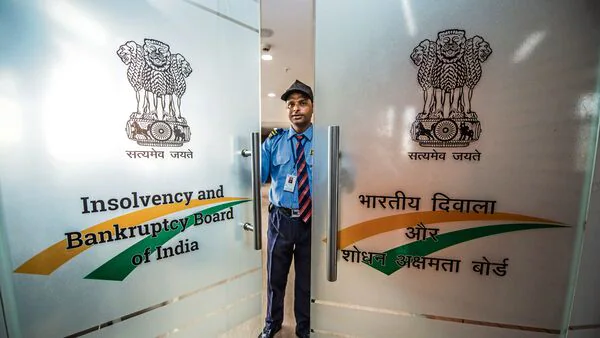
From ₹2-Cr Fine To Nixing Licence-New IBC Moots Stiffer Action On Errant Rps
If the proposals are approved, what will change from the current norms are the penalties-with the maximum being doubled from ₹1 crore-and more teeth to the“disciplinary committee”, the Insolvency and Bankruptcy Board of India (IBBI), that can act faster with show cause notices. The RPs will be classified as“service providers”, putting them clearly under the IBBI's regulatory net.
Corporate debtors will also no longer be able to nominate their resolution professional when filing a section 10 application, which allows firms to voluntarily initiate corporate insolvency resolution process. Instead, the National Company Law Tribunal (NCLT) will refer names to the IBBI in a bid to lower the risk of biased appointments.
Also Read | How AI is helping resurrect India's edtech sectorEven now, the IBBI can take action against an RP, also called the insolvency professional/agency on complaints. This action includes suspension or cancellation of registration or the imposition of penalties, with the present maximum monetary penalty capped at ₹1 crore. The lenders of an insolvent company can replace the RP with a 66% vote.
Currently, the NCLT appoints the resolution professional on the company's recommendation only if no disciplinary action is pending against them. But in cases where the creditors do not favour the professional, the court refers it to the IBBI for recommendation.
In the current context, lenders are seeking to replace RPs in high-profile insolvency cases such as Byju's and Hindustan National Glass, reflecting the growing unease over their conduct. By tightening oversight of the individuals who manage bankrupt firms and oversee creditor recoveries, the amendment seeks restore confidence in India's nine-year-old insolvency regime.
“The disciplinary committee, after giving the service provider an opportunity of being heard, is satisfied that sufficient cause exists, it may impose a penalty as or suspend or cancel the registration of the service provider. Where any service provider has contravened any provisions of this Code or rules or regulations made thereunder, the disciplinary committee may impose penalty which shall be two crore rupees,” said the proposed amendment that was rolled out in August. The service provider here refers to a resolution professional.
Also Read | Karnataka HC bars Byju Raveendran from selling assets in Qatar Holdings disputeWhile managing a company undergoing the bankruptcy process an RP has to take account of the assets, overlook daily operations, and come up with a resolution plan to repay creditors.
The proposed changes come at a time when lenders in several corporate insolvency cases are seeking to replace existing RPs, citing dissatisfaction with their conduct and lack of confidence in the resolution process. The IBC amendment bill was introduced by the government in the Lok Sabha on 12 August. It has since been referred to a select committee for scrutiny.
In various insolvency cases, creditors have proposed to replace the RPs midway during the insolvency proceedings before the NCLT. In ed-tech firm Byju's, which was dragged into insolvency in July 2024, Pankaj Srivastava, the resolution professional, was replaced by Shailendra Ajmera following allegations of gross misconduct. In the case of Hindustan National Glass, which went into insolvency in October 2021, the operational creditor had sought to remove Girish Juneja, the RP, after a Nashik court held Juneja accountable for a fire break at the company's plant. However, the appellate tribunal later stayed the decision.
In the Educomp personal insolvency case of its promoter Shantanu Jagdish Prasad, which was admitted into insolvency May 2017, Sandeep Kumar Bhatt was replaced by Kanti Mohan Rustagi. More recently, in July this year, in the Shree Ram Urban Infrastructure insolvency case, which had been admitted into insolvency in May 2018, the RP was replaced. In the matter, Pankaj R. Mathijia, the RP, was replaced by Truvisory Insolvency Professionals.
“Creditors today are more informed and assertive, having gained considerable experience over the last nine years of the IBC regime, since it was introduced in 2016. They are quick to act if they sense bias or inefficiency and prefer RPs who are commercially adept and legally compliant,” said Karishma Dodeja, partner, corporate practice at Trilegal.
Dhananjay Kumar, partner and head of insolvency and restructuring at Cyril Amarchand Mangaldas, noted that RP replacements often arise from a mix of reasons, including 'performance-related' concerns and the complex financial arrangements typical in insolvency cases.
Also Read | Qatar Fund seeks to enforce $235 mn arbitration award against Byju RaveendranThe stiffer norms in the proposed amendment do not go on to show that the role of RPs is getting challenged.“So long as the RPs rely on quality legal advice and act in good faith, they should not fear these challenges. The IBC ecosystem depends on their competence and neutrality,” said Kumar of Cyril Amarchand Mangaldas.
"...the Bill reinforces reliance on regulatory oversight to address serious concerns. This allows the insolvency framework to retain its flexibility while ensuring that substantiated complaints relating to insolvency professionals are capable of being resolved through a structured and strengthened disciplinary mechanism," said Pranav Khatavkar, founder and managing partner at Lexentra, a legal firm focused on banking, finance and cross-border cases.
To get their view on the draft amendment, Mint reached out to the resolution professionals in the insolvency cases of Byju's, Hindustan National Glass, Educomp and Shree Ram Urban Infrastructure. There was no response from them till press time.
Legal Disclaimer:
MENAFN provides the
information “as is” without warranty of any kind. We do not accept
any responsibility or liability for the accuracy, content, images,
videos, licenses, completeness, legality, or reliability of the information
contained in this article. If you have any complaints or copyright
issues related to this article, kindly contact the provider above.


















Comments
No comment